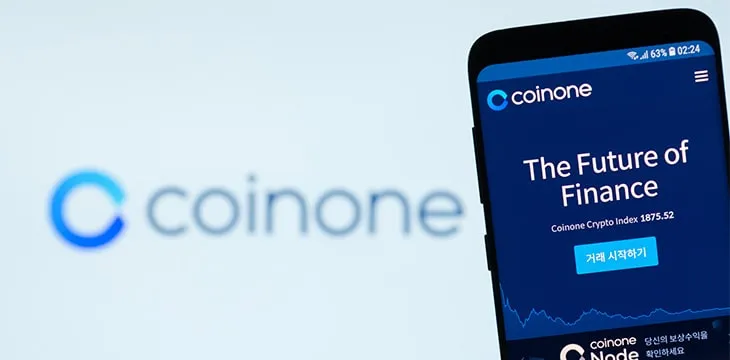|
Getting your Trinity Audio player ready...
|
One of the largest digital currency exchanges in South Korea is moving to block the use of unverified and anonymous wallets. Coinone recently announced that its users will not be able to withdraw their digital currencies to unverified wallets such as MetaMask and Ledger. A top analyst says it’s only a matter of time before other exchanges follow suit.
South Korea has taken its digital asset oversight up a notch in the past year as it seeks to stamp out crime from the rapidly growing sector. It has already prohibited anonymous trading on exchanges, cracked down on many smaller exchanges which were unable to meet very high operating standards, and wiped out nearly $3 billion in Kimchi coins.
Coinone, of South Korea’s big four exchanges—alongside Bithumb, Korbit, and Upbit—is taking the fight against money laundering to users of anonymous and unverified wallets.
In a recent announcement, the exchange said that it will ban all withdrawals to anonymous wallets starting on January 24. Before then, all users must register their external wallets with the exchange.
“If you need to withdraw Coinone’s virtual assets to another virtual asset wallet from January 24, 2022, in accordance with the fulfillment of the customer verification system obligation, you must register the wallet address to be able to withdraw,” the announcement stated.
External wallets include any wallet offered by third parties, including other exchanges, dedicated hot wallets such as MetaMask, and cold wallets such as Trezor and Ledger. However, Coinone has indicated that it will only accept external wallets that have undergone Know Your Customer (KYC) verification.
This means that wallets such as MetaMask, Trezor, and Ledger, which don’t insist on KYC, will no longer be usable for Coinone customers.
The goal is to fight money laundering, something that Korean exchanges have been stringent on in recent years. Upbit, the largest exchange, has already limited withdrawals for unverified users. Bithumb also banned foreign users who failed mobile KYC in September 2021.
Also in March 2021, the Korean government implemented a new law that required all exchanges to have real-name verification for all their customers linked to their bank accounts.
This became one of the biggest challenges for exchanges in Korea as banks refused to partner up with the exchanges, deeming them as too risky. Only three banks took the risk, and they only partnered with the Big Four exchanges. Shinhan Bank partnered with Korbit, K Bank teamed up with Upbit, and NongHyup Bank worked with Coinone and Bithumb.
While Coinone is the first exchange to block withdrawals to unverified wallets, a local analyst believes all other exchanges will follow suit within the next three months.
“Korean exchanges are creating their own Travel Rule solutions in order to meet the requirements to operate post-March. All the Korean exchanges are going to have to use some travel rule system by March because that’s when the government has set a deadline for them. Coinone just did it first,” stated blockchain industry analyst Jun Hyuk Ahn, speaking to one news outlet.
The FATF Travel Rule stipulates that VASPs must share real-identity information with their counterparties or risk heightened AML monitoring. A number of European and Asian countries are already integrating this rule into their existing laws to comply with the FATF. Japan, Singapore, Switzerland, the U.K., the U.S., and Canada are among those that have set the pace.
One of the other Big Four exchanges in South Korea, Korbit, says it has yet to make a decision on blocking unverified wallets. “Korbit identifies, evaluates, and appropriately controls AML (Anti-Money laundering), FDS (Fraud Detection System) in virtual asset transfer transactions,” it said.
Watch: CoinGeek New York presentation, Increasing Footprints of BSV Blockchain in Middle East & South Asia
https://www.youtube.com/watch?v=wGw6rBv7nlc&t=9765s

 07-02-2025
07-02-2025 





